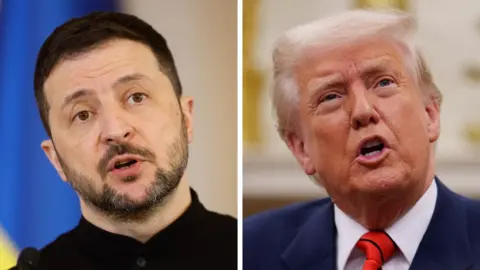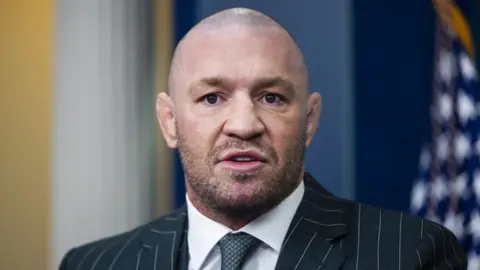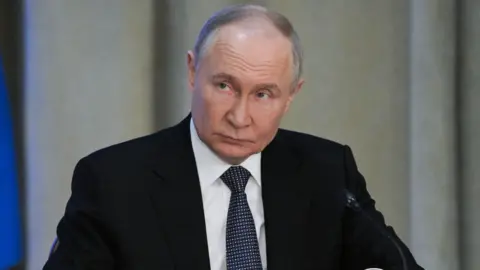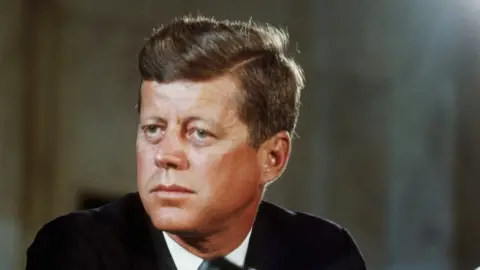
Have you ever wondered how geopolitical dynamics can change the landscape of international relations? It might sound like something straight out of a political thriller, but the reality often plays out in front of us in unexpected ways. Right now, the spotlight is on the Russia-Ukraine conflict, and a recent conversation between Ukrainian President Volodymyr Zelensky and former U.S. President Donald Trump has sparked discussions about the possibility of lasting peace in the region.

The Context: A Call for Peace
The backdrop of the ongoing conflict in Ukraine cannot be overstated. For several years now, Ukraine has been embroiled in conflict with Russia, which annexed Crimea in 2014 and has been involved in various military engagements in eastern Ukraine. The situation has been complicated, with various international actors attempting to mediate a solution. When the news broke about Zelensky and Trump’s call, many saw it as a potential turning point.
A “Very Good” Call
In a recent social media post, Trump mentioned his hour-long phone call with Zelensky, describing it as “very good.” Both leaders emphasized the importance of aligning their countries in terms of their requests and needs. This alignment is critical, as it sets the foundation for negotiations that could lead to a ceasefire and a more stable environment in Ukraine. You might be wondering how such calls can matter in the grand scheme of things. Well, they set the stage for understanding, cooperation, and ultimately, peace.
Zelensky’s Optimism
Zelensky has expressed newfound optimism following his conversation with Trump. He stated, “We believe that together with America, with President Trump, and under American leadership, lasting peace can be achieved this year.” Such statements signal a shift in tone and could motivate both domestic and international audiences to rally for peace. If you think about it, optimism in leadership can often catalyze significant changes in policy—something that is desperately needed in Ukraine.
The Road to Ceasefire
One of the main topics discussed during the call was the potential for a ceasefire, especially concerning key infrastructures like the Zaporizhzhia power plant. Both leaders acknowledged the importance of this facility, which has remained a significant point of contention in the conflict.
Understanding the Zaporizhzhia Power Plant
The Zaporizhzhia power plant is not just a power facility; it’s Europe’s largest nuclear power plant. Its operational status significantly affects both Ukrainians and Europeans, considering the energy crisis that has loomed over many nations in recent years. During the call, Zelensky revealed that bringing this plant back online could take over two years. You wouldn’t want to be the person in charge of running a power plant during a time of war, right? The stakes are incredibly high.
A Partial Ceasefire?
Zelensky hinted that a halting of strikes on critical infrastructures could be quickly established, framing the discussion around a potential partial ceasefire. However, it’s essential to recognize that Ukraine remains resolute in retaliating should Russia disregard this ceasefire. This brings to the forefront the complexities involved in negotiating such terms. Are conditions for a ceasefire really conducive to peace, or are they merely temporary reliefs in a much more extensive conflict?
The Complications of Trust
Despite the positive discussions, Zelensky expressed his skepticism about Putin’s willingness to agree to a full ceasefire. As you might imagine, trust in international relations is often a delicate balance. Having had a surprise attack on Russia’s Kursk region just last year, it’s understandable that Zelensky remains cautious about what agreements may hold up in practice.
Putin’s Position
During his conversation with Trump, Putin set his conditions for peace while rejecting a comprehensive ceasefire. The conditions outlined by Putin could serve as significant obstacles to reaching an agreement that the international community could deem acceptable. If you think about it, peace negotiations rarely move in a straightforward manner, especially when ego and power dynamics are at play.
Navigating International Relations
As both leaders aim to pursue different paths toward peace, the involvement of other nations—including the U.S. and European allies—cannot be overlooked. There are layers of diplomacy at play, and one conversation doesn’t magically fix years of tension.
Trump’s Administration’s Role
Interestingly, Trump’s administration has attempted to align military and humanitarian aid for Ukraine, including the provision of additional air defense systems. By fostering closer relationships among defense teams, both nations can assess battlefield situations more effectively, allowing for informed decisions during negotiations. It’s like having a GPS during a road trip—you need to know where you’re going before making those turns.
Coordinated Efforts
Secretary of State Marco Rubio emphasized the importance of coordination between the U.S. and Ukraine. Upcoming meetings in neutral locations, such as Saudi Arabia, aim to broaden discussions on ceasefires and align military strategies. You can see that diplomacy often resembles a chess game, requiring careful moves, strategic alliances, and sometimes, a bit of luck.

Assessing the Risks
Even with newfound optimism, risks undoubtedly persist. One concern raised during discussions was the precarious nature of ceasefire agreements. Both nations quickly resumed attacks following the Trump-Zelensky call. This brings to light how fragile trust can be in times of conflict—one misstep can lead to an escalation of hostilities.
Recent Strikes
In the aftermath of the phone call, attacks continued, with immediate reports of targeting within hospitals and critical infrastructure. The challenge remains: how can these nations reach a sustainable peace when both sides appear to have conflicting agendas? The recent prisoner exchange may serve as a small glimmer of hope, but it also underscores the ongoing complexities involved.
The Importance of Dialogue
In fragile situations like this, open dialogue becomes essential. Conversations, whether formal or informal, can pave the way for understanding and can sometimes de-escalate rising tensions. In light of their call, both Zelensky and Trump exemplify the importance of communication in international relations. If they can maintain an open line of dialogue, perhaps meaningful progress can be made toward peace.
The Bigger Picture: International Implications
While Zelensky and Trump may be canvassing for peace, the broader geopolitical implications extend far beyond their conversation. Various international players will significantly impact the trajectory of this conflict.
European Allies and Their Stance
European countries have a vested interest in Ukraine’s stability and the broader European security landscape. The potential for a peace deal that favors any one side over the other could complicate relationships with allies. European nations want to ensure that any resolution does not only serve U.S. interests but benefits the region as a whole. How do you think countries balance their national interests while promoting solidarity among allies? It’s a constant juggling act, for sure.
The Role of the United Nations
The United Nations has historically played a role in mediating conflicts. Their involvement could enrich peace discussions but would also require a commitment to upholding international laws and norms. The push and pull of international diplomacy means that each participant must navigate their own interests while considering the global ramifications of their actions.

Moving Ahead: Action Steps
As the world watches Ukraine and Russia grapple with their next moves, there are essential steps that both sides could consider taking for a more constructive pathway to peace.
Increased Humanitarian Efforts
One vital element that often gets overshadowed in the conversation about ceasefires is the urgent need for humanitarian support. With several civilians caught in the crossfire, increased efforts to provide aid should be a priority for both nations and their allies. Ensuring safe passages for humanitarian aid shouldn’t just be a talking point; it must result in actionable commitments.
Ground-Level Initiatives
Moreover, local reconciliation efforts in war-torn areas can create ground-level influences toward peace. Communities need to be involved in dialogue and healing. While political leaders often occupy the limelight, grassroots movements are essential for fostering long-term peace. Emerging from war doesn’t just depend on diplomatic negotiations but also on healing community relationships and rebuilding trust.
Conclusion
You might find it astonishing how intertwined diplomacy, politics, and human compassion can be. As Zelensky and Trump move forward from their recent conversation, a complex web of negotiations, international relationships, and the hopes of millions hangs in the balance. You can sense the tension but also the glimmer of possibility. If lasting peace is achievable this year, it will require not only the courage and leadership from its leaders but a unified commitment to dialogue and cooperation on all levels. Just like in life, sometimes the hardest paths lead to the most rewarding destinations—let’s hope peace is one of them for Ukraine, Russia, and the world.
